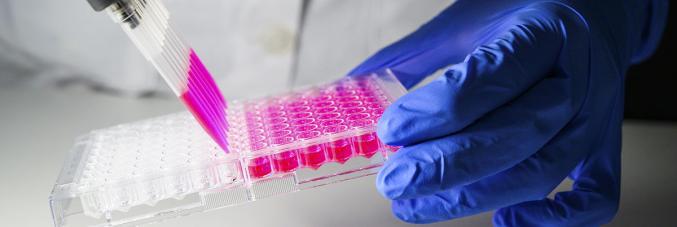
Unipd research. New possibilities identified for chemotherapy-resistant medulloblastoma
29.11.2023
Resistance to chemotherapy is one of the most demanding challenges faced while treating cancer patients. Researchers must try to resolve this with experimental studies. The onset of tumor cells resistant to therapy is one of the major obstacles to the complete elimination of tumors. This is particularly relevant for medulloblastoma, a pediatric brain tumor that is still difficult to treat and often refractory to chemotherapy. Current therapeutic options involve the use of drugs that are only partially effective, as they cause numerous side effects and toxicity for young patients. This leaves room for potential relapses, along with the sometimes long-lasting consequences of not entirely tolerable medications.
In order to identify the molecular mechanisms that allow some tumor cells to resist chemotherapy, researchers from the Department of Women's and Children's Health at the University of Padua and the Pediatric Research Institute - Città della Speranza have cyclically exposed patient-derived medulloblastoma cells to the same drug combination commonly used in the clinic. They thus tried to reproduce in the laboratory what happens when a tumor shows its resistance to chemotherapy.
The results were published in the international journal Acta Neuropathologica Communications in an article entitled “Molecular and functional profiling of chemotolerant cells unveils nucleoside metabolism-dependent vulnerabilities in medulloblastoma”. The study was coordinated by Giampietro Viola and Luca Persano of the Department of Women's and Children's Health at the University of Padua and was conducted with equal contributions by Elena Mariotto, Elena Rampazzo, and Roberta Bortolozzi. The research was supported by the AIRC Foundation for Cancer Research, the Just Italia Foundation, the Cassa di Risparmio di Padova e Rovigo Foundation (CARIPARO), and the US charity Rally Foundation for Childhood Cancer Research.
Thanks to these experiments, the research team showed that chemotherapy-resistant medulloblastoma cells are capable of completely disrupting multiple intracellular processes. Tumor cells thus counteract the damage caused by drugs, adapt to pharmacological treatments, and satisfy the growing needs for nutrients. However, this metabolic reconfiguration can become the Achilles' heel of these cells.
Researchers were able to identify vulnerabilities thanks to a screening of more than 2000 drugs, demonstrating that drugs that act on the metabolism of tumor cells, commonly called antimetabolites, are particularly active in the treatment of resistant cells. This result is particularly relevant since many of the drugs identified are already approved and currently used in the treatment of other tumors, including pediatric ones, thus facilitating their potential future use in the context of medulloblastoma.



